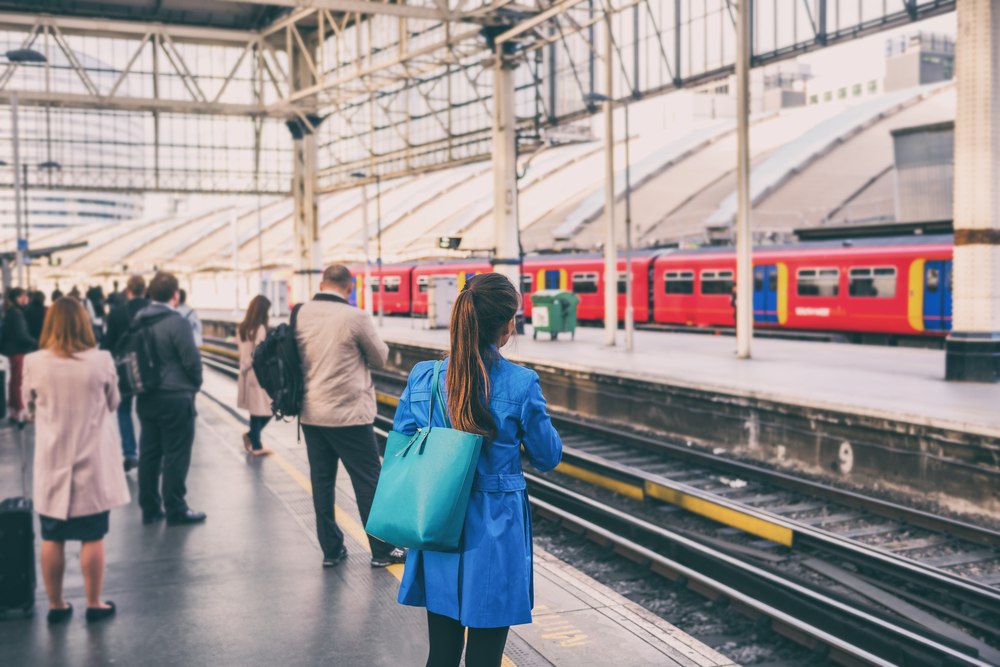Household Bills
Commuters face largest price hikes in a decade

Train season ticket holders could see the cost of getting to work rocket by up to 4.8% next year if the government continues to use July’s retail prices index (RPI) as a basis for fare increases.
Annual increases are usually linked to the previous July’s RPI measure of inflation, with an increase of RPI plus 1% normally used.
The Office for National Statistics has calculated RPI inflation as 3.8% for July 2021, meaning train fares could rise by 4.8%. However, the government has yet to confirm this figure will be used.
This year it increased fares by 1% above inflation to help cover government money spent as a result of lost revenues in the rail industry during the pandemic. As commuting hasn’t returned to normal and rail passenger numbers are still down, the same logic could be used to roll out another above-inflation hike next year.
Laura Suter, head of personal finance at AJ Bell, said: “Once again we’re seeing an RPI rip-off, as commuters are set to see rail fares rise by almost double what they would if the lower measure of inflation, CPI, was used. RPI in July, which is used to set rail fare increases next year, stands at 3.8% while CPI in the same month is 2%.
“This year also sees the highest RPI figure in July since 2011, when it clocked in at 5%, meaning commuters will face the largest rail fare hike for a decade. What’s more, the RPI premium that commuters are facing is the largest for 14 years, with a difference of 1.8 percentage points between the CPI and RPI measures – a difference not seen since 2007.”
If the 4.8% figure is used to hike train fares next year, commuters already paying high costs on popular routes will face further hikes. For example, the annual commute from Oxford to London, including a London travelcard, will clock in at almost £6,700, rising by £245, while the commute from Macclesfield to Manchester will rise by £84 to £2,284.
The annual commute from Tunbridge Wells to London, including travelcard, will leap over the £6,000 mark, rising by more than £220 to £6,033.
Why RPI is a rip-off
There have long been calls for the RPI measure of inflation to be ditched in favour of the Consumer Prices Index (CPIH).
RPI has been dropped as an official inflation measure, and just kept as a legacy measure because so many things are linked to it throughout the economy.
CPI was introduced as a European measure, and CPIH is a variation that factored in the cost of housing. It has since become the government’s measure of choice.
CPIH calculates its averages differently to RPI, so tends to be consistently lower, normally about 1%.
But last year the government said that any reform to RPI will be delayed until 2030.
Train price hikes under the Tories
Labour has analysed costs on more than 180 train routes since the Conservatives came to power and the projected new prices that will be implemented in 2022.
It found that the average commuter faces paying £3,295 for their season ticket – £1,101, or 50% more, than in 2010.
The highest increase is projected to be on a season ticket between Birmingham and London Euston which will have risen by £4,016 since 2010 and now costs £12,044.
The biggest percentage increase identified was between Thame Bridge Parkway near Walsall and Nuneaton, where the cost of an annual season ticket will have risen by 71% since 2010.
Jim McMahon, Labour’s shadow transport secretary, said: “Rail travel has long been unaffordable for many people, thanks to the Conservatives prioritising the profits of private companies over passengers.
“This would be yet another eye-watering hike hot on the heels of the failure of the government’s so-called money saving flexi ticket scheme.”